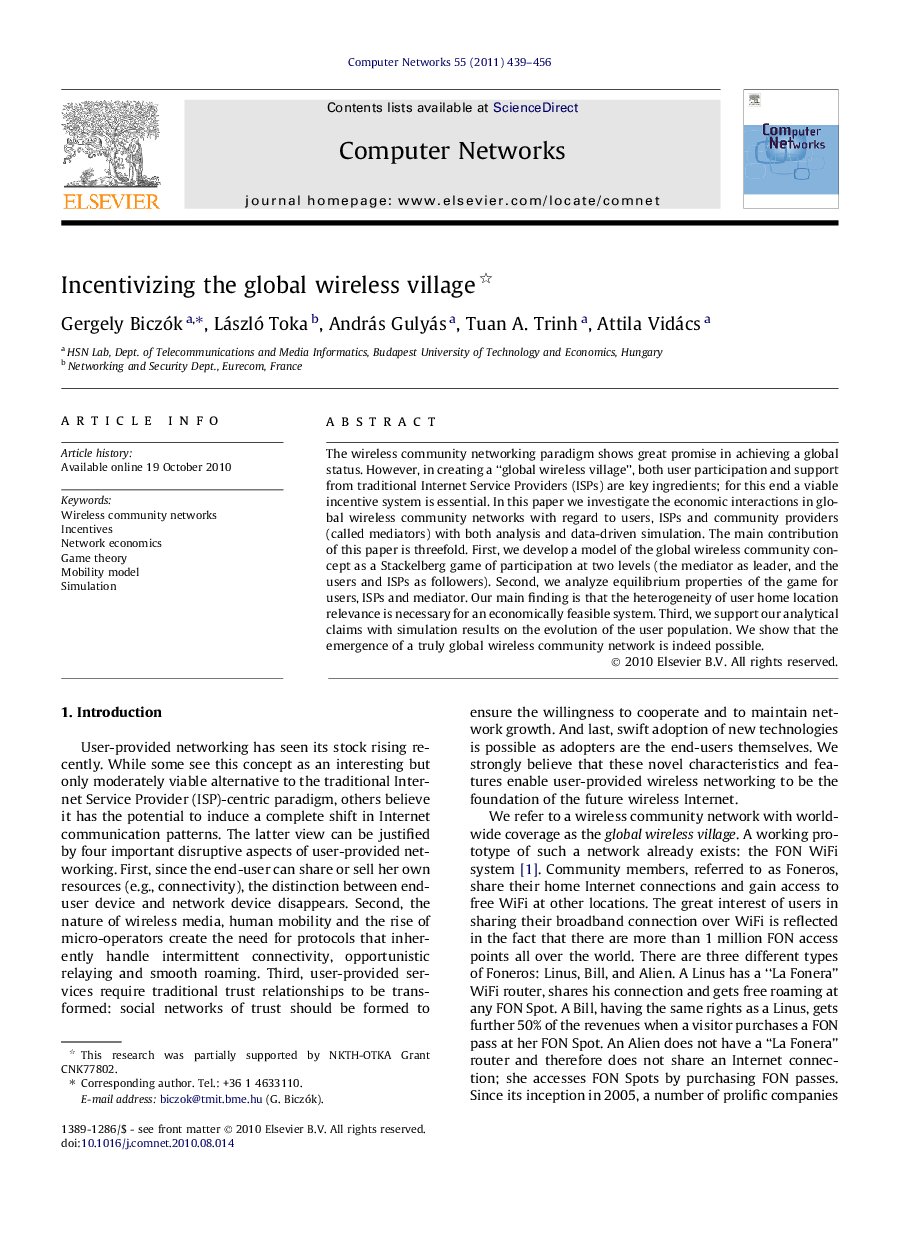| Article ID | Journal | Published Year | Pages | File Type |
|---|---|---|---|---|
| 452246 | Computer Networks | 2011 | 18 Pages |
The wireless community networking paradigm shows great promise in achieving a global status. However, in creating a “global wireless village”, both user participation and support from traditional Internet Service Providers (ISPs) are key ingredients; for this end a viable incentive system is essential. In this paper we investigate the economic interactions in global wireless community networks with regard to users, ISPs and community providers (called mediators) with both analysis and data-driven simulation. The main contribution of this paper is threefold. First, we develop a model of the global wireless community concept as a Stackelberg game of participation at two levels (the mediator as leader, and the users and ISPs as followers). Second, we analyze equilibrium properties of the game for users, ISPs and mediator. Our main finding is that the heterogeneity of user home location relevance is necessary for an economically feasible system. Third, we support our analytical claims with simulation results on the evolution of the user population. We show that the emergence of a truly global wireless community network is indeed possible.
